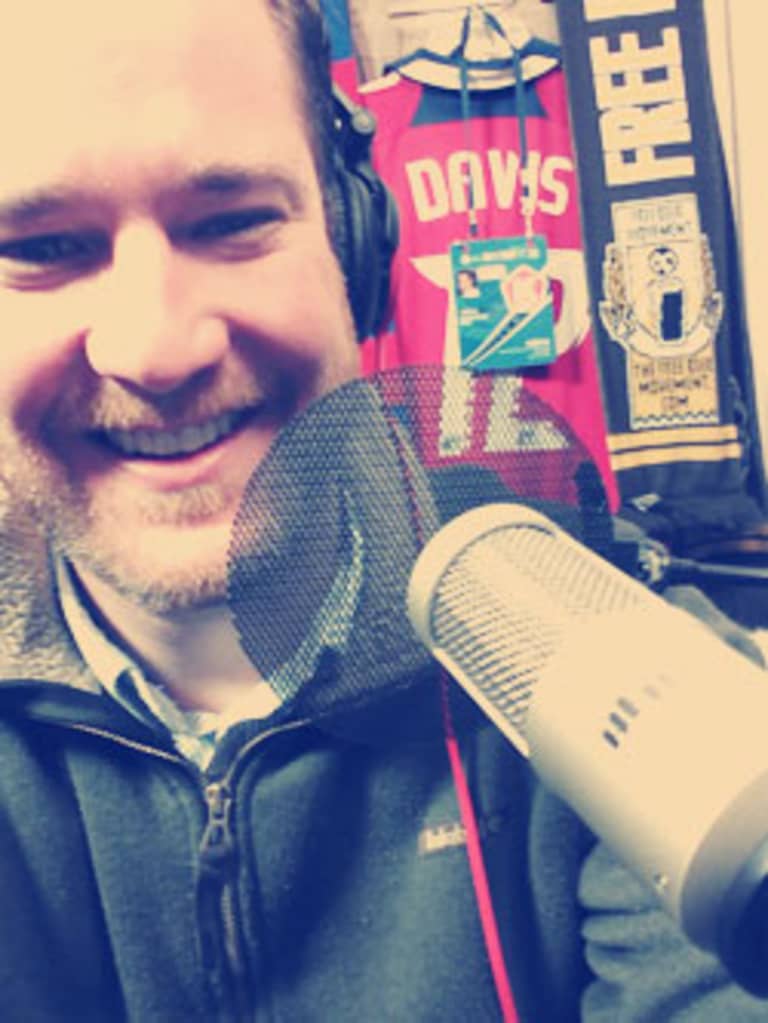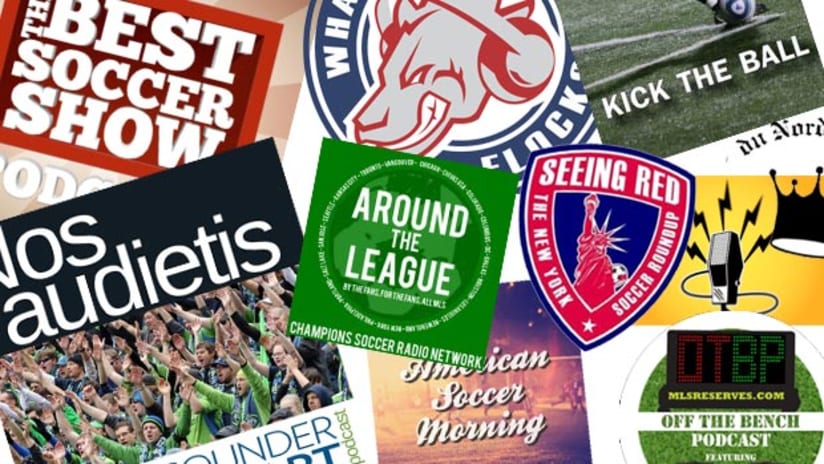SEATTLE — "Soccer podcasting was like the punk-rock revolution in music."
Those words, courtesy of Around the League host Scott Bornstein, struck a chord with me the moment I heard them. I had been talking to various MLS podcasters while researching this story and had been trying to find a common thread. It wasn’t the most original concept, as he admitted to reading a similar philosophy more broadly attached to American soccer on the now-mothballed blog "MatchFit USA." But when I went over my notes, of which there were honestly far too many, this was a theme everyone seemed to hit on — whether they meant to or not.
As someone who has a podcast myself — Nos Audietis, which focuses on the Seattle Sounders — I admit to reveling in the imagery that Bornstein’s words conjure up: people dedicated to their craft, with an internal need to share their thoughts with no one in particular, doing it out of love of something that excites them.
You could find plenty of ways, of course, to shoot down the punk-rock revolution analogy. But it does seem to dovetail nicely with the larger themes at play in the current landscape of MLS and its clubs’ supporters.
In that sense, I really do feel as though podcasting is something that has come to define the way MLS and its clubs are consumed by many of its most hardcore supporters. Sure, there are message boards, blogs and even real-life interaction at the pub, but podcasting seems to be where it all comes together. You’re listening to a real, live person after all. Someone who is probably a supporter, just like you.
* * *
Scott Bornstein is a perfect example.
Several years ago, Bornstein, who lives in the Dallas area and supports FC Dallas, was dismayed at the lack of coverage his team received from the local media. He would visit websites like BigSoccer to get his fix, but he thirsted for something more. Eventually, he found his way onto the podcast Around the League, which made its name by getting updates from people who lived and breathed their local team. One thing led to another, and he eventually became the host.
“There was no other coverage,” he says about the state of soccer media when he took over the ATL helm about four years ago. “My thought was: The fans needed a voice. We needed to build a culture.”
Although ATL is popular enough to bring on “name” guests, they’ve relied almost exclusively on fans to provide their updates — with half the league being featured each week.
“I never want a coach on my show,” Bornstein says. “I always want a fan.”

One of the unintended consequences of ATL’s ethos is that it has become somewhat of a proving ground for aspiring podcasters. A quick look at the MLS podcast landscape and you’ll find
ATL
’s influence virtually everywhere, from the Red Bulls podcast
Seeing Red
to the Chivas USA podcast
What the Flock?
to everywhere in between. Hell, I was once an
ATL
correspondent.
ATL also helped launch the career of Jason Davis (right), arguably the most successful MLS podcaster and now the host of The Best Soccer Show and American Soccer Morning, both of which are now on the YouTube channel KICKTV.
Davis might currently be the only person in the country who can tell you with a straight face that he is a professional MLS podcaster. The paycheck — and impressive production value — aside, he still considers what he does to be a product by and for the people.
“It’s citizen journalism,” Davis says, placing podcasting into a similar category as blogging.
In both cases, fans seem to have been responding to an information vacuum. For the most part, these days, MLS teams seem to get regular coverage from their local newspapers in print and online. Most blogs are a response to the way those teams are being covered.
Sports radio, on the other hand, is not nearly as soccer savvy. Even here in Seattle, where the Sounders are a major part of the sports landscape, the radio coverage remains thin and is almost always part of a specialized one-hour program or centered around a guest. Left to their own devices, sports-talk radio hosts rarely talk about their local MLS team in a similarly organic way as they do their baseball team.
* *
For a time, James Starritt actually hosted a Kansas City soccer radio show. The team paid for the time, which came with some expectations he found constraining. So he started his own podcast, Kick the Ball, along with two members of the Sporting KC supporters group The Cauldron and a Kansas City Star reporter. Even though the Kansas City soccer-media landscape has improved in recent years, he still feels as though his show provides something fans would otherwise miss.
“We can throw out some weekly coverage, it’s independent of the team and it’s content that is freely out there for people,” he says. “It’s not managed.”
It’s also not burdened by the press’s sense of “professional detachment.” At their heart, soccer podcasters in the USA and Canada are going through the same emotional roller-coasters that their listeners are.
“It’s fans talking about the team that they love in a nontraditional way,” Bornstein says. “I think that’s what makes it great. We’re all accessible. We had to make people feel like they were part of the family and think that they were sitting in the room talking to you. They weren’t listening to someone who was untouchable. We are fans just like they are.”
Is this how you build a sustainable media presence in the 21st century for a sport that is underserved by some of the traditional outlets? Maybe.
But even if that were to change drastically — and it is changing — I’m not at all convinced that podcasting will stop being a significant part of the MLS media landscape. It’s too late. This is now part of our DNA. As with any revolution, the most intriguing part is building something new the way you want it built. Supporters have found their voice, and now, despite talk radio’s lack of coverage, they’re recording it and broadcasting it. It doesn’t get much more punk rock than that.
* *













